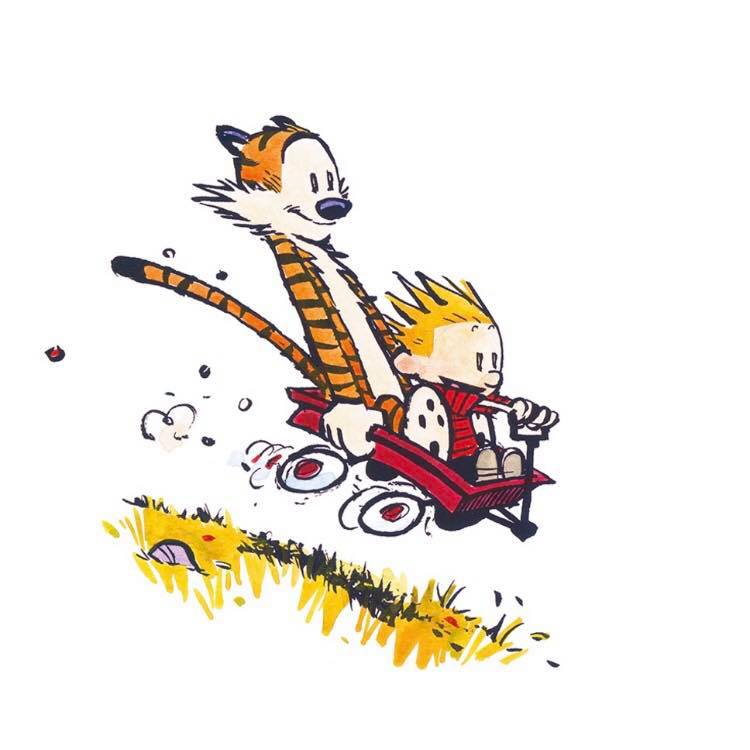Building a Quiet Brand
At the height of the of popularity of Calvin & Hobbes , creator Bill Watterson made an unprecedented decision: he rejected all merchandising offers.
No licensing for stuffed animals, cartoons, lunch boxes, shirts, or stickers. He wouldn’t even talk to Pixar about an animated film. To this day, there is nothing for sale but reprints of the original comics.
When compared with brands like Peanuts & Garfield, it’s likely that Watterson turned down at least $400 million in deals.
His focus was the integrity of the art. He didn’t want these products to distract from the storytelling. He wanted his characters to live in just one format, with one voice.
Most industry experts predicted that when the newspaper strip ended in 1995, Calvin & Hobbes would disappear from public consciousness. Without new content or outside licensing, it would vanish. Conventional wisdom says that’s how you build brand recognition.
But Watterson intended it to be a self-contained work, within his control from start to finish. And he built exactly the brand identity he envisioned.
Calvin & Hobbes remains among the most successful comics in print. The collected editions of the original newspaper strips have sold more 30 million copies.
Today, many believe that Watterson’s refusal to license created a purity that keeps us intrigued with the original work. There is only one version of these iconic stories and that strengthens our love for them.
In our noisy world, sometimes the best branding isn’t about getting louder. Sometimes, it’s about quietly growing in your craft, obsessively pursuing the work, building real connections one person at a time, and focusing on the long-term legacy you are creating for your life & your career.

